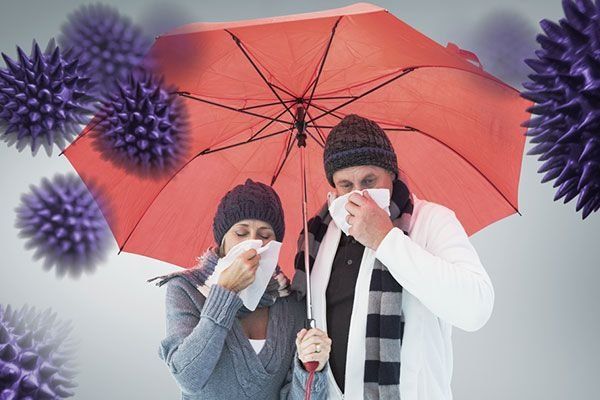By Clarissa K. Wittenberg, former senior communications officer at the National Institutes of Health
Since its outbreak in early 2015 in Brazil, the Zika virus has spread across South and Central America and now into the United States, devastating thousands of women who are pregnant or who have given birth to a child with irreversible birth defects, including microcephaly. Even infected babies born with mild problems can develop more severe issues as they grow.
What is the risk?
We need a new definition of risk with attention to the degree of devastation in vulnerable members of our society. It is a terrible risk if even one baby is born so incapacitated that they cannot swallow, think, walk and grow.
Estimates range from 1 percent to 13 percent (and higher depending on the study) that a child born to a Zika-infected woman will have birth defects. Certainly, protection of pregnant women from environmental hazards such as mosquitoes is imperative.
As things stand now, the women most affected are among the poorest and least able to protect themselves via safe homes and access to services. But even a woman with air conditioning, screen windows and the means to spray to eradicate mosquitoes is at risk. If you have to walk on a hot day to reach your prenatal clinic, you are in danger. If one of us can be infected, we are all at risk.
What do we know?
Zika is spread primarily by infected Aedes aegypti mosquitoes, which are known to bite indoors and out, day and night, and have distinctive white bands on their legs and markings on their body. These are the same mosquitoes that transmit yellow fever, dengue fever and chikungunya virus. Testing for Zika should also rule out these illnesses, because their symptoms can be similar.
An infected woman or man can transmit the virus sexually, so experts advise that anyone infected (or potentially infected) use condoms for all sexual contact or avoid sex altogether. Because the virus can be found in blood, Puerto Rico—which is in the midst of a serious Zika epidemic—has been using blood supplies from the United States, and the U.S. Food and Drug Administration (FDA) has ordered that donated blood be tested for Zika.
Are there vaccines or treatments?
There are several high-complexity diagnostic tests for Zika, but they are scarce. Clinicians should contact the Centers for Disease Control and Prevention (CDC) or the FDA for the most recent advice on testing. Ultrasounds, to help with assessing head development of the fetus, are recommended. Because of the dire effects of Zika on pregnant women, testing is recommended as early as possible.
Currently, there is no preventive vaccine for Zika, although one vaccine began testing in humans in August 2016. There also are no treatments that can stop the neural damage caused by the Zika virus, although there are symptomatic treatments that can make patients more comfortable. The symptoms of Zika may be so mild as to go unnoticed, but generally they include rashes, muscle and joint pain, malaise, headache and conjunctivitis.
Zika is also linked to Guillain-Barré Syndrome, a rare neurological disorder that can cause breathing problems, paralysis and even death. Women and men can get Guillain-Barré, and a pregnant woman who has Guillain-Barré can miscarry or give birth prematurely.
What can be done?
The CDC provides effective information and materials in a wide variety of languages. Every effort should be made to make this information visible to the public.
It is important for women who are pregnant or who want to become pregnant to learn the basic facts about the Zika virus and to check with trustworthy sources for information. The CDC, NIH and World Health Organization have a wealth of information on their websites. The March of Dimes and other private foundations can also be helpful resources.
What is the funding status?
Dr. Tom Frieden, director of the CDC, and Dr. Anthony S. Fauci, director of the National Institute of Allergy and Infectious Diseases at the NIH, argued for Congress to act on funding for Zika. To date, they cite 16,800 cases of Zika infection reported to the CDC from the United States and its territories, including 2,700 across this country and 8,746 in Puerto Rico. The organization's website is continually updated.
Two neighborhoods in Florida have travel warnings, and Puerto Rico is in a full-fledged emergency despite the fact that the CDC has been working with the Puerto Rican Department of Health for almost a year. They have a comprehensive program of clinics, diagnostic labs and health messages, and still Zika infections are spreading.
Puerto Rico is also struggling with another Zika problem: how to safely but effectively eradicate mosquitoes.
Additionally, as with Ebola, all health care workers, cosmetic care workers and personal caretakers should be aware if their clients have recently traveled in Zika-infected areas and take precautions for their own safety.
What happens if Congress doesn't adequately fund Zika programs?
Dr. Frieden and Dr. Fauci argue that the cost of not funding Zika programs will not only end in misery and death, but will carry huge economic costs for lifelong care. Programs to help parents with Zika-infected children are barely in the planning stages. But the doctors also argue that if funds are borrowed from current programs, other important research will be endangered or ruined.
Previous research on viruses similar to Zika (namely dengue fever research) helped accelerate the efforts to create a Zika vaccine. And taking "leftover" Ebola funds is unwisely gambling that Ebola is not coming back.
In February, President Obama requested $1.9 billion to confront the threat, but political response has been late and ambivalent and remains tangled in political arguments about women's reproductive health. It is time for the Congress to act.
The Society For Women's Health Research (SWHR) is a national nonprofit dedicated to improving women's health through science, advocacy and education. It has been advocating for more than 25 years to bring more awareness to understanding sex differences in infectious diseases, leading to personalized treatment and prevention. Click here to learn more about the Society's work on infectious diseases.
About the Author: Clarissa K. Wittenberg has served as a senior communications officer at several NIH Institutes: the Office of Global Health, Office of the Director, and Office of Health and Human Services. She has also worked as a consultant on mental and overall health of underserved populations to the Department of Psychiatry and Human Behavior at the University of Mississippi Medical Center and was on a select volunteer health issues committee for the first Obama campaign.
More:
Zika Virus

Zika Virus: Women and Children Are at Risk
The Zika virus puts pregnant women and their children at risk, and it's time for the United States to take this risk seriously.
Dec 14, 2016
Sep 28, 2023
Pregnancy & Postpartum





